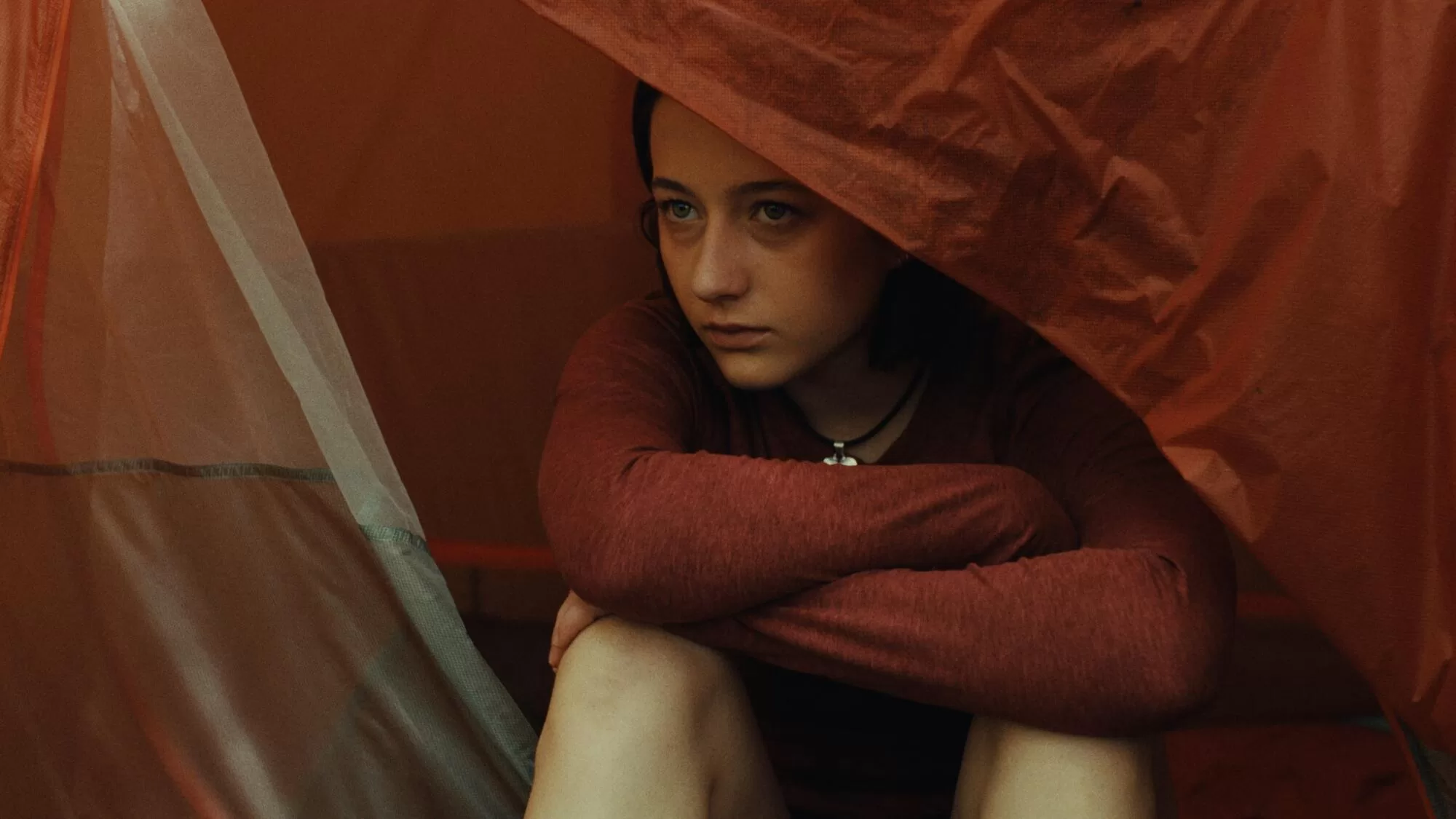India Donaldson was done with acting when she was about 7 years old. In fact, it’s one of her earliest memories. Her father, the veteran Hollywood director Roger Donaldson, asked her to be an extra in a diner scene for his 1994 film “The Getaway,” co-starring the freshly married Alec Baldwin and Kim Basinger. Other kids might have been thrilled. She was mortified.
“My older brother had a line, and in my memory he was really thriving in this context, but I was kind of embarrassed,” India Donaldson says over Zoom from Los Angeles, laughing at her younger self. “I had a bowl of Cheerios and was eating the Cheerios, and I remember my dad coming over and whispering to me, ‘You don’t actually have to eat the Cheerios.’”
She shakes her head. “I never acted in a movie ever again.”
Even if performing wasn’t in her future, Donaldson, 39, has emerged as a formidable filmmaker, following in her father’s footsteps by releasing a debut feature, “Good One.” Acclaimed at Sundance and invited to screen at the Directors’ Fortnight at Cannes, the intimate drama consolidates the strengths of several previous shorts, demonstrating her ability to create delicate worlds in which soulful, everyday people operate, albeit not always comfortably. It’s the story of a daughter and father , teenage Sam (Lily Collias) and divorced-and-remarried Chris (James Le Gros), on a weekend Catskills camping trip with Chris’ old friend Matt (Danny McCarthy). Sam and Chris love their nature getaways, but this particular excursion will be one that stays with the 17-year-old the rest of her life. She just doesn’t know it yet.
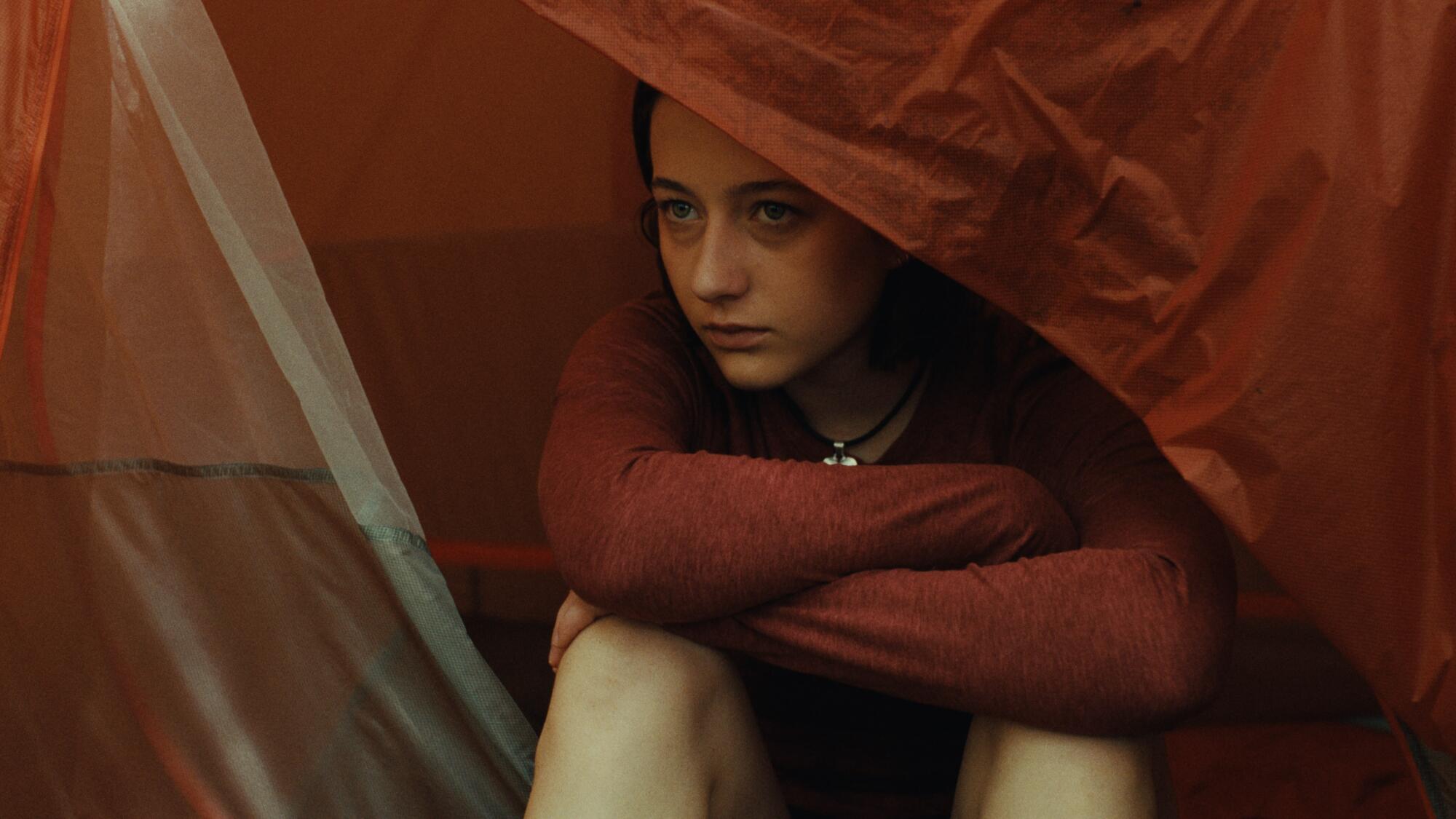
Lily Collias in the movie “Good One.”
(Metrograph Pictures)
It would be a stretch to say the journey to make “Good One,” which opens Friday, began at the “Getaway” diner. But in order to arrive at the place where Donaldson finally felt ready to be a writer-director, she would need to draw from her own life as the daughter of a successful filmmaker. “Good One” isn’t autobiographical, but it is deeply personal.
“I think it was, more than anything, a product of the evolving person that I am,” she offers. “It took me a while to have the confidence to imagine myself in a role where you’re asking people — your collaborators, the people who give you money — to trust you.”
In a separate phone interview, Roger Donaldson, who started his career in the late 1970s in New Zealand and Australia with movies like “Sleeping Dogs” before moving to the U.S. to make studio pictures such as “No Way Out,” “Cocktail” and “Species,” practically beams while talking about India.
“She would design and make clothes and toys and write stories that indicated that she had a talent for doing creative things,” he says. “The first inkling of her interest in filmmaking [was] she studied creative writing. She was always a very creative writer, but she kept it pretty quiet until she made those short films.”
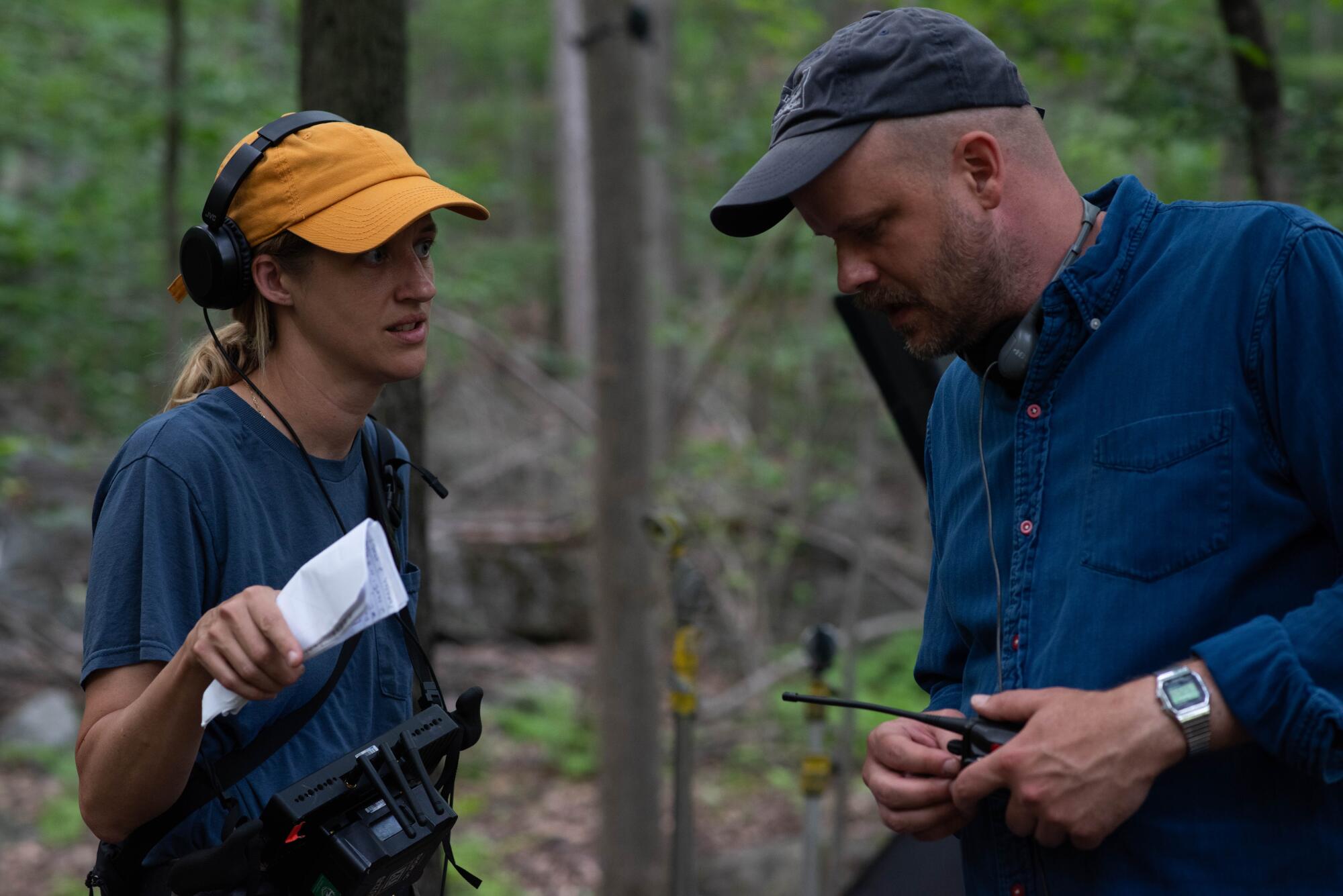
India Donaldson and producer Graham Mason on the set of “Good One.”
(Eric Ruby)
India was not one of those rebellious teenagers. “I idolized both of my parents and wanted their approval,” she says, slightly sheepishly, noting that Roger and her mother, Mel Clark, divorced when she was young. “My mom is an intensely creative person. She is an incredible designer. She had a knitwear line when I was growing up and then had a yarn store in Santa Monica when I was in high school — just constantly making things.”
But where other children of famed directors might consider filmmaking their birthright, India, indicative of her temperate personality, felt no such entitlement. In conversation, she radiates a down-to-earth vibe of nerdy best friend. Despite growing up around Hollywood, there’s nothing polished or cool about her, only a somewhat studious air. India was entranced by movies from childhood — she recalls watching dailies with her dad, trying to detect slight differences from shot to shot — but thought of that work as beyond her.
“I had a little bit of a longer path to get to that point,” she says. “I was, as a teenager, a more internal person and I identified directing as this external kind of job. Now I don’t think that’s true, but it was an idea I had that I had to prove wrong through my own experience.”
Watch her three short films — “Medusa,” “Hannahs” and “If Found,” all available on YouTube — and you’ll glimpse the unobtrusive, observant style she brings to “Good One,” which captures the still-festering male rivalry between middle-aged friends. “There’s a kind of passive way that the characters express themselves, a subtle passive-aggression,” she says when discussing what connects her shorts to her feature. “I think that always is a fascination, the ways in which human beings act out in ways that are adjacent to what they want to say or what they want to do — the roundabout ways we get where we’re going.”
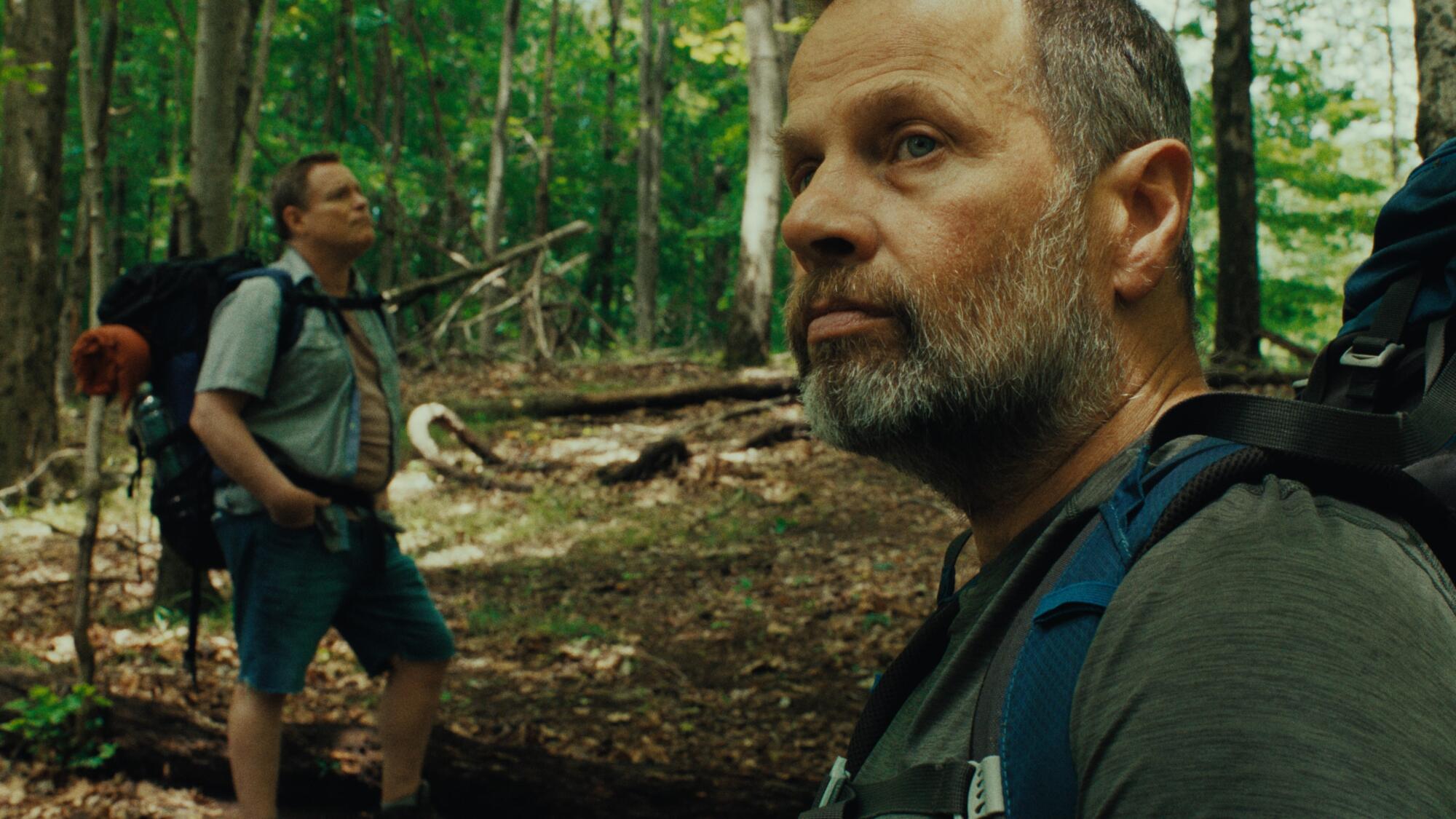
James Le Gros, right, and Danny McCarthy in the movie “Good One.”
(Metrograph Pictures)
If the pandemic hadn’t happened, Donaldson might not have found the proper headspace to dream up “Good One.” After mostly growing up in L.A. and going to Santa Monica High School, she attended Vassar College and lived in New York for 10 years. Then, in March 2020, right before the world changed, she and her husband moved back west for a job she had landed in a writers’ room for a show that never got made. But once the lockdown took hold, they impulsively moved in with Roger, his third wife Marliese and India’s two teenage half siblings, Will and Octavia. Being around family — especially the teens — gave Donaldson the initial stirrings for the script she would write.
“I think these characters and their dynamics had been percolating in an abstract form for some time,” she remembers. “I was reflecting on my youth through [my half siblings] and my proximity to them. The circumstances of the world at that time put these characters in this particular environment.”
“Good One” derives its title from the idea that Sam is the golden child, the good one. This poised, mature-beyond-her-years young woman actually likes spending time with her dad, despite being an age when most kids don’t, and she easily engages both men in conversation. But it also refers to Donaldson’s mixed feelings about her similar status in her blended family.
“All my family members might see themselves as being the person who’s trying to keep the peace, because that’s what we were probably all striving for,” she says. “But I can also point to specific memories of, like, ‘OK, my dad likes taking pictures,’ so I’m going to be the one who’s like, ‘Yes, I will go out with you and you can teach me about how to use a camera.’ Molding your interests around your parents so that you can be close to them — I think that’s how our personalities are formed in many ways.”
Both Donaldson and her father, who have shared numerous camping trips, stress that “Good One” doesn’t echo actual events. That disclaimer might seem unnecessary for most of the film’s runtime, which consists of the three characters hiking and hanging out. But slowly, a silent tension develops that leads to a troubling moment that happens so quickly and casually that some viewers may wonder if what they saw really occurred. It irrevocably changes how the audience feels about Sam and these men.
Donaldson says that the story’s brief but profound shock was something she hit upon early in the project’s genesis.
“I wanted to explore this idea that, inevitably, our parents will disappoint us,” explains the director, herself the mother of a 3-year-old son. “We who become parents will disappoint our children in ways that we can’t foresee, even when you’re trying your best. Somehow, through all the murkiness of that, you have to maintain a relationship.”
Her relationship with her father has only been strengthened by her becoming a parent and a director. On the filmmaking front, Roger offered his daughter practical advice that he sent her in an email. (One tidbit: “If you haven’t finished the scene and the sun’s gone down and the DP says, ‘That’s it, I can’t shoot anymore,’ you just say, ‘No, we keep on shooting.’”) But he resists the suggestion that he deserves any credit for “Good One’s” success.
“I think she appreciated that I went to the trouble to give her my insight of the trials and tribulations of being a movie director,” he says, modestly. “But you’re out there on your own — you’ve got to deliver the goods yourself.” He marvels at how India has come into her own. “That didn’t happen overnight. As a teenager, she was …. ”
He pauses, struggling how to describe his daughter. “‘Subdued’ is not the right word. She just worked hard and put her nose down. She wasn’t flamboyant or had to be the center of attention. But she was noticed because whatever she did was done very well.”
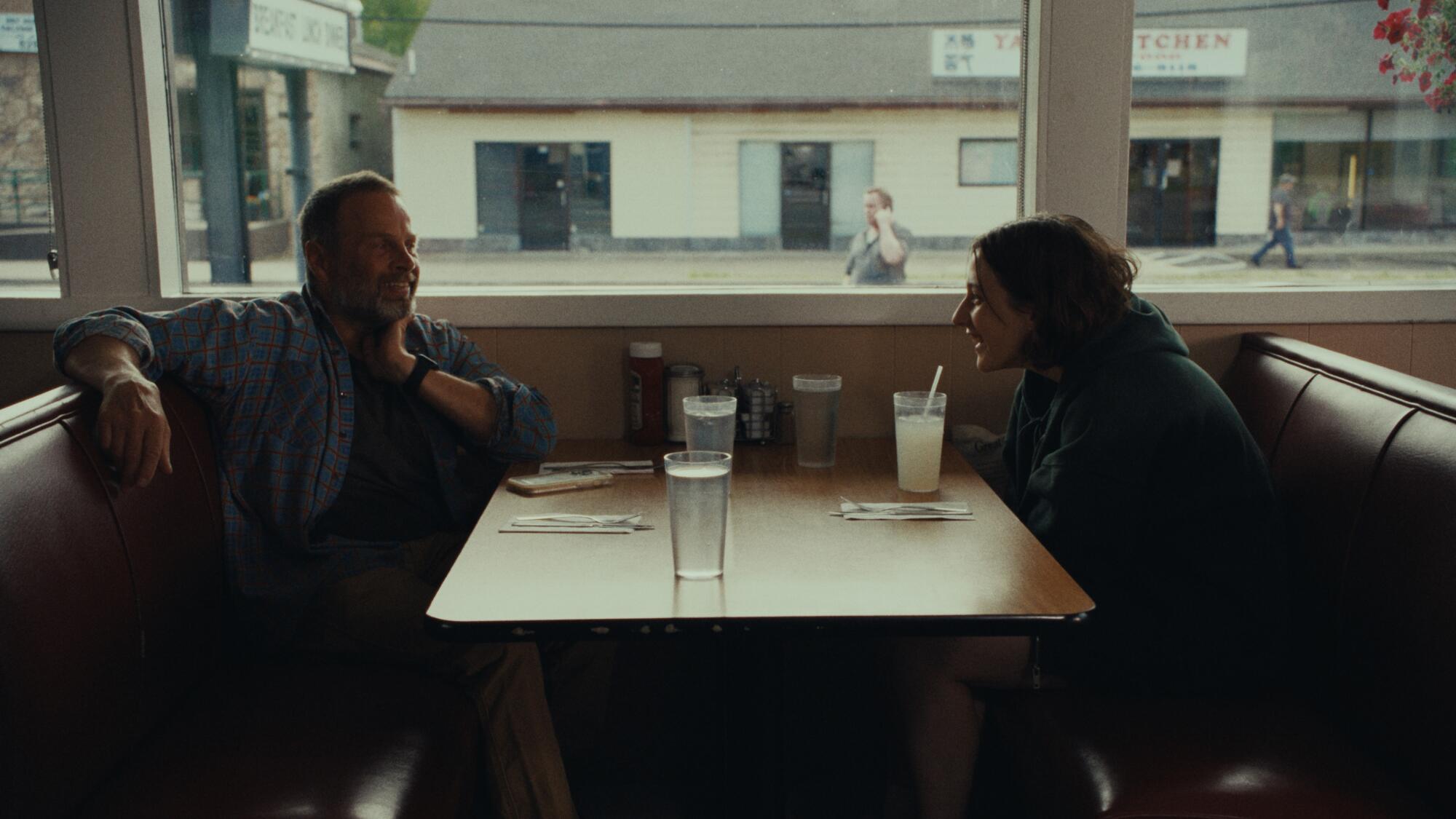
James Le Gros and Lily Collias in the movie “Good One.”
(Metrograph Pictures)
India Donaldson cites Kelly Reichardt as a major influence and, indeed, “Good One” echoes the sensitive, skeletal drama of Reichardt’s “Old Joy,” another film about men in the woods. Even if “Good One” chronicles a fraught vacation, she only has good feelings about her childhood camping trips. “My dad loved to just get away, and that’s part of the spirit that inspired this movie,” she says. “He loves to let your thoughts wander and get that distance from your everyday life. I had many of those experiences with him growing up that seemed integral to making space for yourself to be a human being outside of an industry.”
The wisdom of Donaldson’s debut is rare, resonating with something larger about masculinity, family and letting go of childhood narratives about yourself and your parents. It isn’t a confessional, exactly, but once you know more about its maker, the clearer it is how much the film reveals about her, especially as she ponders the similarities she’s uncovered between parenthood and filmmaking.
“You can’t control how people are going to feel about it, what its life will be out in the world without you,” she says, smiling, referring to both a movie and a child. “Just do the best you can and hope that you’ve given it the tools to thrive.”
